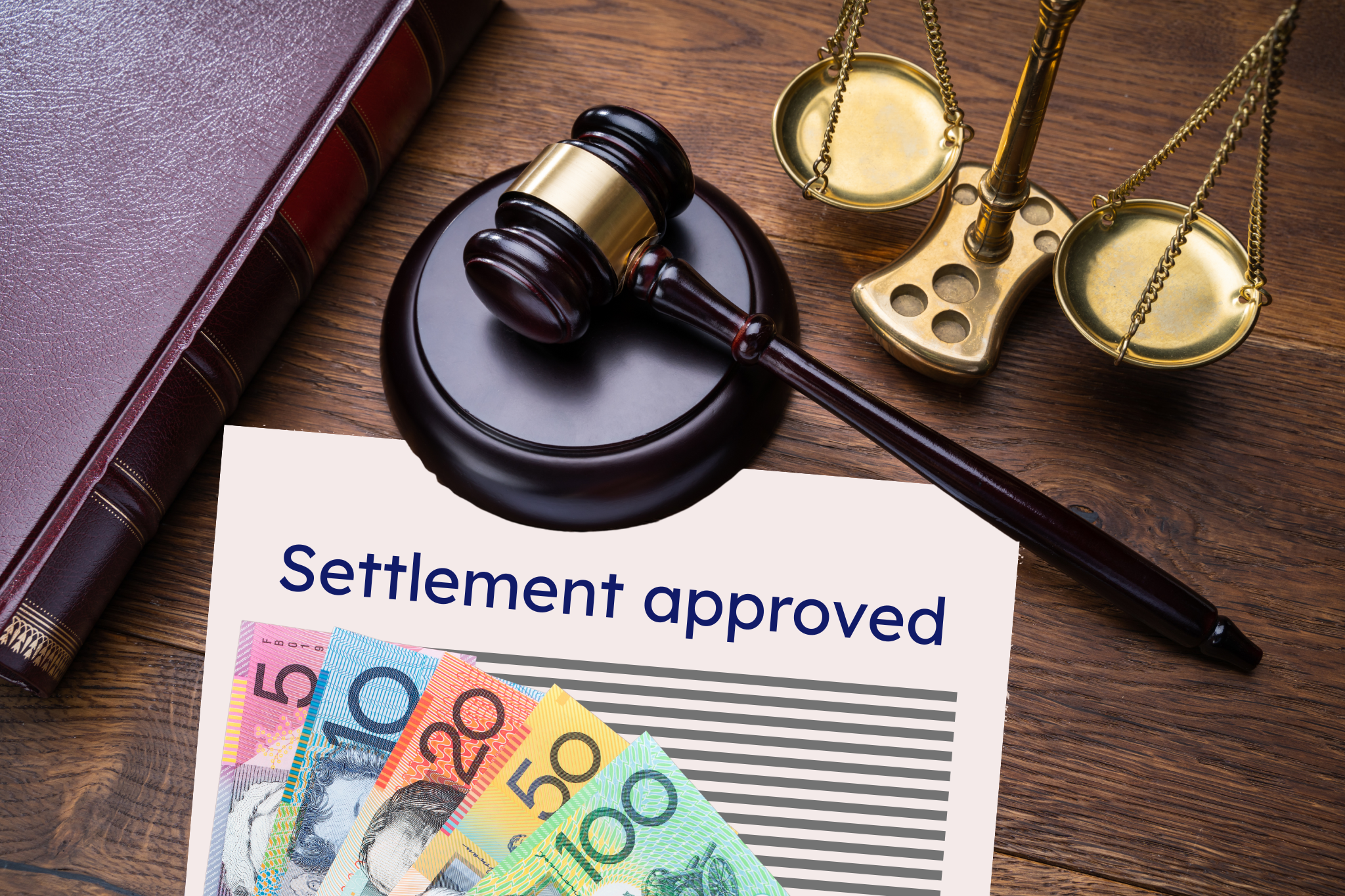
Credit Card or BNPL: Which Offers Better Safety and Protection for Your Money?
Last updated on May 29th, 2025
These days, cashless is the way to go. But with other services like Buy Now, Pay Later available in Australia, is it still smart to get a credit card? Let’s talk about that hot piece of plastic and what it can really do for you.
How do credit cards work?
When you have a credit card, most things are just a swipe away. That is, as long as it’s within the amount you’re allowed to spend as determined by your bank—your credit limit.
Credit cards operate under the Australian National Credit Act. This means that card providers need to review how much they should allow you to spend on a credit card. Your credit limit is calculated through your income, employment status, credit history, the type of card you’re applying for, and your request for credit limit, if it applies. This lets the bank know if you will be able to pay off what you’ll be spending.
If you have a credit card, you should be aware of the interest rate that applies to the card and under what conditions you will have to pay interest. If you have an outstanding balance on your credit card at the end of the month, you’ll likely be paying interest. Long story short, pay off as much of your credit card bill as quickly as you can to avoid paying interest!
Credit Cards vs. Buy Now, Pay Later
In a way, credit cards work like Buy Now, Pay Later (BNPL) services. Both allow you to buy things and pay for those things in installments. But what are the differences between the two digital payment methods? Why would you prefer one over the other?
Limits on spending
The Australian National Credit Act means the company providing you a credit card has to consider how much money you can pay off each month. This is your credit limit. Most importantly, they need to consider all the other credit cards and loans you have when assessing what limit to set for you. Each time you apply for a credit card, it’s recorded on your credit file. Having multiple enquiries during a short period on your credit file will give future credit providers the impression that you’re a higher-risk applicant, which would then likely cause them to reject your application.
BNPL services don’t need to consider the National Credit Act. That means, when considering how much to allow you to buy with their services, they don’t need to consider your financial situation. This makes it easier to provide you with BNPL services since you can technically buy anything less than$2,000 without them checking on your credit history. Plus you have a lot of options like Afterpay and Zip. You can shop and buy all you want and the sky’s the limit. But that also means you have to maintain different ‘wallets’ because they don’t take note of your other BNPL accounts and overall credit file. The key point, you need to track all your BNPL spending because no one else is!
A tip we’d like to share with you, whether you’re getting BNPL service or a credit card, keep your spending at a minimum. Stick to only what you know you can afford to repay without compromising your needs and lifestyle.
Repayments
Have you ever wondered why minimum repayments are set so low for credit cards? This is because of minimum monthly payments. Having a low minimum payment allows you to have a higher credit limit. For example, if the bank sets a minimum repayment of 2 percent a month on the outstanding balance, you can be given a credit limit as high as $5000 with a minimum payment of only $100 per month. If the minimum payment is set at 5% of the outstanding balance, the credit limit is slashed to $2000 with the same minimum monthly payment of $100. The more you pay off, the less interest it will cost you and the other way around.
Repayments for BNPL services are done in installment, with claims that their offer is interest-free. However, many people do pay an administration fee or late payment fees. Zip, for example, has a minimum repayment of $40 and extends a 60-day no-interest installment plan. After the two months, they charge you a $6 monthly service fee if you still have a balance, outside of what you still have to pay for.
Payers and fees
For credit cards, you’re paying fees through interest. There are also other fees to consider like annual fees, late payment fees, over-limit fees, rewards program membership fees, and cash advance fees. But take note that not all fees are necessary. If you don’t make a cash advance withdrawal, for example, you obviously won’t have to pay for it.
With BNPL, you don’t have as many fees upfront since merchants are also paying for this service. Since you're paying for your purchase in smaller amounts in installments, you now have the initial ability to buy. Sometimes this makes you buy more, and that's what merchants are after. But that doesn't mean you don’t also pay for this service. There can be monthly service fees if you still haven’t paid off your balance after your installment dates. Much like in credit cards, late payment fees also apply. For example, Afterpay will charge you up to a $68 late fee if the deduction from your linked account doesn’t go through. If you cannot pay for it in the next seven days, there's an additional $7 cost.
Regulations
The law regulates credit Cards through the Australian National Credit Act. This indicates that credit providers must be licensed, fulfilling specific obligations like responsible lending.
The BNPL has a Code of Conduct made by the industry, for the industry. They have basic guidelines that only eight BNPL providers agree to voluntarily.
Things you should always buy on your credit card

Aside from convenience, it is sometimes smarter to use your credit card for purchases. As long as you pay your bills on time, we’ve listed down some purchases.
1. Online and small retailer purchases
Competitive as they are, it’s usually cheaper to buy online or from small retailers. But since you might be buying from an unsecured network or a lesser-known brand, there are risks involved. Because of credit cards’ fraud protection, you can lower risks.
Credit cards are a safer option than other ways to pay online, from 24/7 fraud monitoring, fraud alerts, and zero liability for fraudulent transactions.
2. Flights and car rentals
Apart from frequent flyer points offered by some credit cards, you can also get insurance for both travel and car rentals. That is if you use your credit card to pay for the service. CommBank, for example, offers international travel insurance with overseas medical benefits, cancellation cost protection, travel delay expenses, and rental vehicle insurance, to name a few. It is always good to check with your credit card provider what the insurance inclusions apply to your card before hiring a rental car or booking a flight.
3. Big-ticket items
For big-ticket items like refrigerators and laptops, you would like to get a warranty. The Australian Consumer Law already gives you a 12-month warranty. And, your credit card can give you even longer insurance for your items with their extended warranty. For example, ANZ offers free Extended Warranty Insurance on personal and household purchases. They offer it for specific items with up to a one-year extension after the manufacturer’s Australian warranty expires.
4. Hotel rooms
In booking hotel rooms, you are more often than not asked to leave a deposit. Paying in cash may mean you’ll lose your petty cash for your trip. They will return the deposit to you, of course, but that would be after your stay.
You can use your credit card to avoid this. The hotel can't charge you straight up, but there will be a hold on the deposit amount. This means that your credit limit will be deducted from the deposit fee for the duration of your stay. This will be lifted once you check out and there are no damages in your hotel room.
5. Concert tickets
With concert tickets, you have to be one step ahead if you want good seats. To avoid lines, scalpers, and even extra charges, you can use your credit card for presale opportunities. Credit cards like Westpac offer Concierge and Lifestyle Services, which have direct access to major venues and box offices worldwide. They help you skip lines and steer away from other booking drama to get those front-row tickets.
6. Tax-deductible items
Credit card statements will make it easier for you to keep records of purchases. With detailed information on your bank statement like merchant name, address, website, and even map, your credit card bank records can help you keep organized during tax season.
For banks like NAB, you can access up to seven years worth of bank statements. They also have a ‘Something’s not right’ feature when you can’t pinpoint a particular merchant. To activate this, you can tap on the dispute transaction link to identify discrepancies in your purchase.
7. Service providers
If a business permanently closes, you can ask for a chargeback to get your money refunded. We assisted some customers of a laser hair removal business through a chargeback that asked for upfront payment then went out of business. Since the business owner didn’t keep their end of the bargain, we can ask for our money back through a chargeback since we didn’t receive the goods or service.
A chargeback is different from fraud in that fraud is a transaction you didn’t authorise. It is fraud when someone else is using your account without your knowledge. With a chargeback, no one tricked you into unknowingly using your card. You know that you swiped for that item, it’s just that you arguably didn’t get what you paid for.
How does our credit card protect us when we don’t receive the purchased product or service?
When we use our credit card to purchase products or services - whether online or physically - and we don’t receive what we paid for, we can usually apply for a refund. This is called a chargeback.

Chargeback also applies to cancellations on holiday or travel plans, which has become more of a problem due to quarantine restrictions brought on Covid-19.
Before requesting a chargeback from your financial institution, it is best to contact the merchant you’ve purchased the product or service from. Ask them if they can give you a refund or offer a reasonable alternative.
If you didn’t receive a product or cannot use a service you bought, your financial institution will ask if you tried to contact the merchant first to resolve this with them. Not contacting them may affect your request for a chargeback.
In making your claim, make sure you use the word “chargeback” to your provider. This shows them that you know what you’re asking for and that you mean business.
Once they hear you out, make sure you gather all relevant documentation like receipts and invoices to back your request. Your financial institution will then review everything you’ve submitted to see if you’ve met the requirements for a chargeback. Subject to terms and conditions, qualifying claims can include that your purchase was paid for but not received.
Once your financial institution finds you to be entitled to a chargeback, they submit your claim to the seller’s financial institution, and they will both review if you’re entitled to get your money back. They usually decide if you or the seller is entitled to the money, which means your request is still subject to rejection or approval.
If they agree that you should get the payment back, you get your refund. But if there’s a disagreement between your financial institution and the merchant, they may ask the credit card scheme like Visa or Mastercard to decide. The decision of the credit card scheme is final. If the seller has the means and the financial institutions approve your request, you will finally get your money back.
Does the process seem confusing or daunting? We got you. All you have to say is 'Help Me Handle It' and we’ll ensure you follow the correct complaint process.






